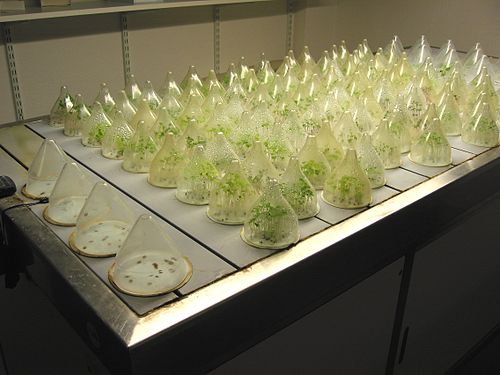
Back علم وظائف أعضاء النبات Arabic Fisioloxía vexetal AST Үҫемлектәр физиологияһы Bashkir Физиология на растенията Bulgarian Fiziologija biljaka BS Fisiologia vegetal Catalan Fyziologie rostlin Czech Ӳсентăрансен физиологийĕ CV Plantefysiologi Danish Pflanzenphysiologie German
Plant physiology is a subdiscipline of botany concerned with the functioning, or physiology, of plants.[1]

Plant physiologists study fundamental processes of plants, such as photosynthesis, respiration, plant nutrition, plant hormone functions, tropisms, nastic movements, photoperiodism, photomorphogenesis, circadian rhythms, environmental stress physiology, seed germination, dormancy and stomata function and transpiration. Plant physiology interacts with the fields of plant morphology (structure of plants), plant ecology (interactions with the environment), phytochemistry (biochemistry of plants), cell biology, genetics, biophysics and molecular biology.
- ^ Frank B. Salisbury; Cleon W. Ross (1992). Plant physiology. Brooks/Cole Pub Co. ISBN 0-534-15162-0.